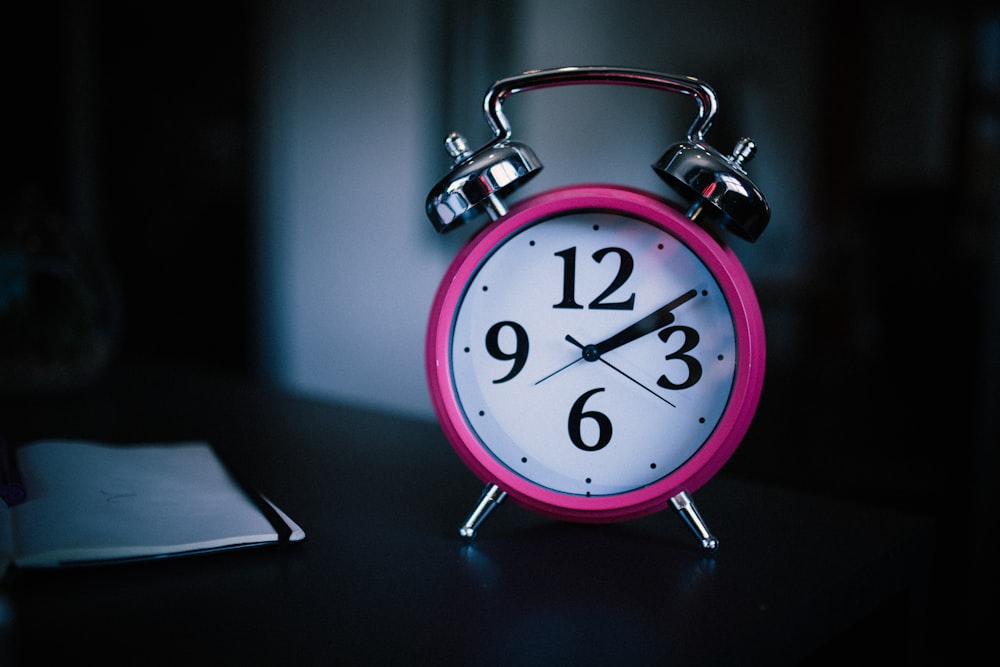
Insomnia is a sleep disorder that causes people to go through life sleep-deprived. Getting adequate sleep is a necessity because sleep is an essential component of holistic health, so insomnia is a condition you should fight to treat.
Without adequate sleep, your immunity takes a hit, and your body will start to become dysfunctional. There are many repercussions of not getting enough sleep. To name just a few of the consequences of insomnia, you’ll be more irritable, moody, less productive, have less energy and you’ll be more prone to illness.
Your body recharges and heals itself while you’re in a deep sleep. How much sleep you need varies from person to person. Most adults require around 6 to 8 hours of sleep per night. Those who find it difficult to fall asleep and stay asleep will have very little energy during the day. If you find it difficult to sleep, you might have insomnia. Learn more about this health condition below.

Defining Insomnia
Simply put, insomnia is a sleep disorder that makes falling asleep and staying asleep very difficult. Falling asleep is the hardest part. Even if you fall asleep, many people with insomnia constantly wake up and don’t achieve the state of deep sleep they’d otherwise achieve if they stayed asleep.
Although those with insomnia wake up feeling unrested and are very tired throughout the day, they still find it very difficult to fall asleep at night. As a result, insomnia adversely impacts their quality of life and mental health.
Insomnia depletes your energy, affects your mood, causes strain in relationships, and impedes work performance. Worst of all, it takes a toll on your health.
Most adults can experience acute or short-term insomnia at some point in their life. This can last for days or weeks. Short-term insomnia is typically a consequence of stress. Stressful situations to do with work, relationships or a traumatic event can cause acute insomnia, but this short-term insomnia won’t always persist. Some people find their sleep goes back to normal once the stressful situation passes.
However, some people have chronic or long-term insomnia that lasts for many months or even many years. It can be very debilitating for a person to endure a sleep disorder that causes sleep deficiency for the long haul. In this instance, insomnia itself may be the primary problem. However, it could also be associated with other health conditions or it could even be the result of certain medications.
Speak to your pharmacist if you’re on a medication that acts as a stimulant, such as an antidepressant or ADHD medication that could be disrupting your ability to sleep.
Signs and Symptoms of Insomnia
Are you battling insomnia? Take a look at the common signs and symptoms of insomnia below:
- Extreme difficulty falling asleep at night
- Difficulty sleeping (waking up intermittently throughout the night)
- Waking up too early after only a few hours of sleep, and not being able to fall back asleep
- Feeling unrested when you wake up, knowing you didn’t get proper sleep
- Feeling tired during the day
- Being very irritable, moody, sad or anxious
- Brain fog, lack of focus and difficulty sustaining attention
- Memory problems
- Increased accidents and errors
- Constantly worrying and feeling frustrated about sleep
Causes of Insomnia
It’s possible your insomnia is associated with certain lifestyle habits, medications or underlying health conditions. For successful treatment of insomnia, you need to find the root cause of the problem. The most common causes of insomnia are the following:
Stress
It could be concerns about personal relationships, work, health, finances, family life, or school. All of these worries keep your mind very active and alert at night, making it difficult for you to rest. Furthermore, traumatic life events like an accident, death of a loved one, job loss, illness, or divorce can also result in insomnia.
Shift Work or Constant Travel
Your body has a built-in circadian rhythm. This is your internal body clock that guides your sleep-wake cycle, including your metabolic rate and even basal body temperature. Unfortunately, disrupting your circadian rhythm with something like shift work can result in insomnia. Similarly, frequent travel to countries with different time zones can disrupt your circadian rhythm.

Poor Sleep Hygiene
If you’ve got poor sleep habits and bad sleep hygiene, this can lead to insomnia. This includes having an irregular bedtime or lack of sleep schedule.
If you have an uncomfortable sleeping environment or use your bedroom for work, this is not good sleep hygiene, and you might have trouble sleeping at night. In addition, studies showthat doing stimulating activities such as gaming or scanning social media before you sleep is detrimental. That’s because blue light from screens can interfere with your sleep cycle as it suppresses melatonin and causes neurophysiologic arousal.
Late Night Snacking
If you have a late-night snacking habit, this can keep you awake, because your digestive system remains active at night instead of winding down. You may also find it very difficult to lay down because a full stomach pushes the backflow of acid from your belly into the esophagus. This results in heartburn, which is a very uncomfortable feeling that prevents you from sleeping.
Medical Conditions
Some medical conditions will keep you up at night. Examples are: anxiety disorders, reflux disease, chronic pain, overactive thyroid, Parkinson’s Disease, Alzheimer’s disease, and PTSD, to name a few. Other sleep disorders such as sleep apnea or restless leg syndrome can also prevent you from getting a good night’s sleep.
Certain Medications
Insomnia can be related to certain prescription drugs which interfere with sleep. For example, prescription medications for ADHD, depression, asthma, or hypertension can have side effects that disrupt sleeping patterns. Many ADHD medications and antidepressants, for example, are stimulants that can impair your ability to fall asleep, causing insomnia. Even OTC medications such as cold medicines or weight loss supplements contain stimulants that promote wakefulness.
Excessive Intake of Caffeine, Alcohol, and Nicotine
Drinking coffee, sodas, energy drinks, and tea late into the afternoon or in the evening can keep you up because they contain caffeine and other stimulants designed to make you feel energetic. Similarly, nicotine found in tobacco is another culprit that interferes with sleep. Finally, many people believe that alcohol induces sleep. However, research indicatesthat it prevents you from experiencing deep sleep and results in nighttime awakening.

Risk Factors for Insomnia
It’s important to note that everyone experiences the occasional trouble sleeping. Even children and teens may have days where they find it nearly impossible to fall asleep. However, your risk for experiencing insomnia is greater if you are:
- Female. Being female increases the risk of insomnia because hormonal shifts during menstruation and menopause play a significant role in sleep health.
- Pregnancy also makes you more prone to sleeping disorders, especially in the 2nd and 3rd trimester of pregnancy.
- Shift work. If you don’t have a regular work schedule because you travel for work or frequently work the graveyard shift, this could mess up your internal body clock.
- Mental health disorders. Being diagnosed with mental health disorders (or physical health conditions) can disrupt sleep.
Treatments for Insomnia
You will feel miserable and irritable when you’re sleep-deprived because you cannot perform your daily functions properly and you don’t feel great. If insomnia makes you dysfunctional since you feel lethargic or moody all day, you need to see a doctor to identify the root of the problem.
Your doctor might refer you to a sleep clinic for sleep testing to check if you suffer from any other sleep disorders like sleep apnea, bruxism, or restless leg syndrome. Further diagnostic testing can also be conducted to check other underlying health issues. In some cases, the doctor may prescribe sleeping aids to help you fix your sleep schedule. In most cases, however, simple changes in your daily habits will help. It’s best to try to combat insomnia without sleeping pills, since sleeping pills can cause dependency, memory loss, and other problems. Take note of the following tips to help lull you to sleep:
- Try to maintain a consistent wake time and bedtime schedule, even on weekends
- Stay active, because exercise promotes a good night’s rest
- Check if any of your medications contain stimulants that contribute to insomnia
- Avoid excessive caffeine, alcohol, and nicotine consumption
- Cease your late-night snacking habit
- Make your bedroom cozier to encourage sleep
- Invest in a good quality mattress and pillows
- Use a 100% blackout sleep mask to avoid the light waking you up
- Create a relaxing bedtime ritual such as taking a warm bath, diffusing lavender which promotes sleep, drinking chamomile tea, and reading by candlelight.
- Stop all forms of gadget use when you are in bed (1 hour before bed) to prevent blue light exposure from affecting your sleep
Remember, sleep is an essential component of your physical, mental and emotional health. Your body heals and repairs itself while you’re deep in slumber. Allow your cells to regenerate by getting adequate sleep each night. If you have persistent insomnia, you could have an increased risk of heart disease, high blood pressure, stroke, kidney issues, and diabetes. You’re also more prone to accidents when sleep deprived.
Are You Genetically More Likely to Have Insomnia?
It is best to stay proactive about your health to avoid serious complications. CircleDNA is an at-home DNA testing kit that provides you with over 500 reports about yourself. Your DNA test results include stress and sleep reports based on your genetics, which reveal whether or not you have a late chronotype, whether or not you’re likely to have difficulty falling asleep, your genetic likelihood of being a ‘short duration sleeper’ and much more. Your genetics could explain why you have insomnia, and it’s up to you to fight for your right to sleep.







This Post Has One Comment
Comments are closed.